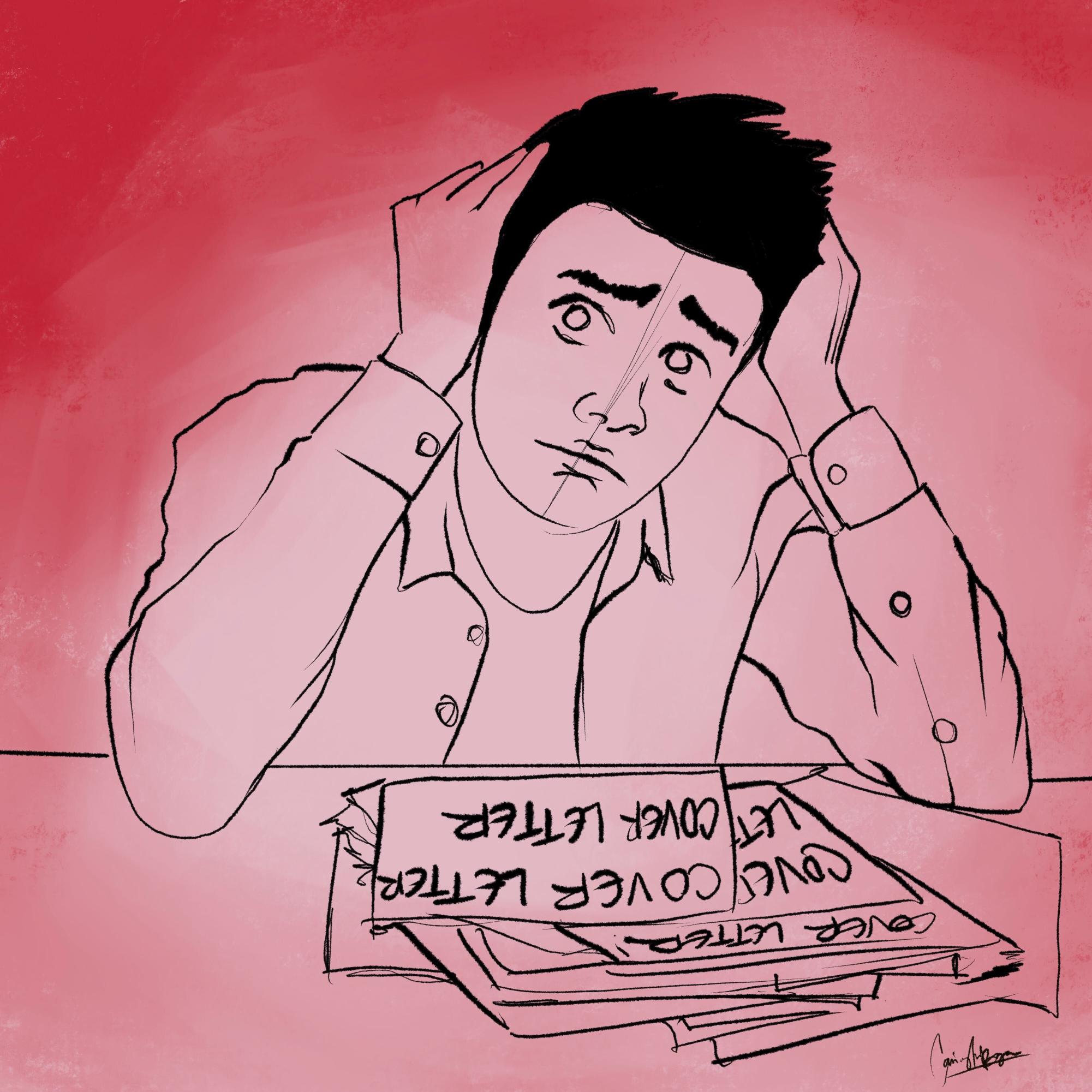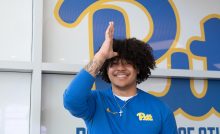Opinion | I have a love-hate relationship with cover letters


I’m sweating over my laptop, frantically skimming over the job qualifications. “Bachelor’s …OK OK … must be able to work a minimum of 12 … part-time … attach a resumé and cover letter.” I grind my teeth in frustration. I need two references, a resumé and a cover letter? For an entry-level part-time job? I hate this.
The dichotomy of my last semester at college is gnawing at me. On the one hand, I am ready to finish out my last classes and finally be free of the academic chokehold that I admittedly am grateful for. On the other, what comes after college is the dreaded realization that I must now enter the workforce. It’s become this game of cat and mouse between myself and employers. It feels scarier than all of my four years at college sometimes. I wish it wasn’t that way.
I have a love-hate relationship with cover letters for job applications. Frankly, it’s mostly hate, but I am warming up to them. Job searching is tough as it is, and curating a personalized letter for almost every job is tiring.
It feels like fluff. I use filler words and try to not sound like a robot and instead like someone who actually wants and needs the job. I want to like cover letters. I understand that cover letters are how you stick out to recruiters. They show that you are more than your experience on a resumé and prove that you are a person with passions and goals. Sharing your personality may make you a more attractive candidate.
There are only so many descriptive words that will make you sound like you did not just search Google for the synonyms of “experience,” “skills,” “determined,” “team-player,” “basic,” “good” and “great.” The list can go on forever. When I find an adjective that sounds intriguing enough, next thing I know, I’m second-guessing that it sounds too pretentious — that employers will take one look at it and think, “Look at this applicant trying to be something they’re not. Next!” I have doubts that company hiring managers even read the entire cover letter sometimes, but I still get this hint of imposter syndrome.
Also, how long are cover letters even supposed to be? I found a person on Reddit who says three paragraphs. I have no idea who they are, but three paragraphs seems too short. Other job-coaching websites say to fill the whole sheet of paper. I already have a college education, I don’t want to write an essay for every job I apply to.
How many times do you put your contact information in? There are three places on my own cover letter template right now — the top right header, my concluding paragraph and in my signature. Three times on one document. Not to mention that it’s also already on my resumé and the separate application I filled out. If that information is difficult to find on a candidate’s application, then I have some serious questions for the recruiter.
I realize that “love” is a strong word for a relationship to a piece of paper. I might not love cover letters as much, but I appreciate what they can do for a candidate that a plain old resumé might not be able to. Cover letters can show a “bit” of personality and how you may be able to connect with the company — I think personal statements are much more effective in this regard, and I will touch on that later — but with cover letters, maybe there is a circumstance where you are applying to a job that is not directly related to your field of studies. This is now your chance to elaborate on how you might be a good fit.
I did this just the other day. I applied for an internship for a dance company here in Pittsburgh. I am an English nonfiction writing and theater arts major who is trying to get into arts administration. So, in my cover letter, I was able to highlight that though my passion is strongest for theater, the dance scene in Pittsburgh is something I have not experienced yet and I would love to have skills in an array of performing arts settings. I have an interview with them next week.
I have also applied to some jobs that are focused more on marketing and less on writing. I am not a marketing major, nor have I taken any marketing classes. But I have experience in running social media and blogging, and those qualities could be beneficial to a marketing-focused job or internship. That is something I could discuss in my cover letter.
There is also a section of mostly internship applications that I find are superior to cover letters, and that is personal statements. They are shorter and condensed. This allows for the applicant to cut straight to the chase and explain how they are a good candidate for the job. They are a lot easier to curate for jobs because they take less time to write. Though personal statements may be considered less professional, this allows the employers to see the applicant more as a person who wants the job.
These statements are more personable, and you can cut all of the filler words and get right to who you are and what your goals are, such as what you have studied, the type of experience you have and how this job would suit you. Professional jargon about your skill sets should be less emphasized. I also think there is room for some personal flair such as wit or a specific niche that you have that would relate to the job. In a personal statement, there is more space to be yourself.
I could definitely whip out more personal statements for individual jobs than an entire page-long cover letter. This would also allow me to be more selective regarding my own time and dedication I put towards these applications. I have applied to 11 jobs so far in January. I know that’s not a lot, it’s less than one a day, but that’s the goal I am trying to set for myself for the next few weeks so I can get something locked down by the time graduation rolls around.
I wish all of those who are graduating this spring good luck in their job search. It’s not easy. There are a lot of factors in the world right now that are working against us Gen Z graduates, so I applaud you even if you get one application out over an entire month. I hear of some of my peers who already have full-time positions from internships they did last summer, or they’re going into a graduate program or are moving back home. Whatever your plans are, know that you are in control. Do what makes you happy.
Abby Dobry writes mostly about life and the arts. Write to her at abd61@pitt.edu
Recent Posts
SGB addresses concerns about ICE presence on campus, hears SJP lawsuit against administration, approves governing code bill
At its weekly meeting on Tuesday at Nordy’s Place, Student Government Board heard concerns about…
ACLU of Pennsylvania sues Pitt over SJP suspension
The ACLU of Pennsylvania filed a federal civil lawsuit against the University of Pittsburgh and…
Marquan Pope: The ultimate shark
One of the most remarkable things about sharks is that an injury doesn’t deter them.…
Who Asked? // Do we really get a summer vacation?
This installment of Who Asked? by staff writer Brynn Murawski mourns the seemingly impossible perfect…
Notes From an Average Girl // Notes from my junior year
In this edition of Notes From an Average Girl, senior staff writer Madeline Milchman reflects…
Meaning at the Movies // The Power of the Movie Theater
In this edition of “Meaning at the Movies,” staff writer Lauren Deaton discusses her love…
